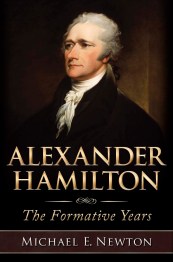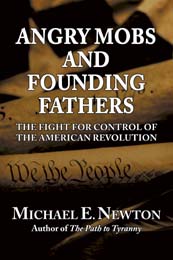Members of the tea party have been called tea baggers, extremists, racists, and Nazis by opponents of the grass-roots pro-liberty movement. While this shows the lack of “civility” of the left, supporters of liberty are always attacked for their beliefs.
Socrates spent his life fighting for freedom of speech and freedom of religion and became a martyr for these causes. In 399 BC, Socrates was charged and put to death for disbelieving in the official Greek pantheon and for corrupting the youth of Athens. But Socrates had also angered most of Athens for praising Sparta while the two were at war with each other, insulting the intellectuals of Athens by claiming he was the wisest man alive, criticizing the leaders of Athens, and arguing against democracy. Admitting that he enjoyed stirring up trouble, Socrates said at his trial: “For if you put me to death, you will not easily find another, who, to use a rather absurd figure, attaches himself to the city as a gadfly to a horse, which, though large and well bred, is sluggish on account of his size and needs to be aroused by stinging. I think the god fastened me upon the city in some such capacity, and I go about arousing.” [Plato, Apology 30e.] Socrates’ criticism of ancient Athens’ political system and leadership got him killed.
Demosthenes fought bigger government, higher taxes, and political corruption in ancient Athens. But he is best remembered for his opposition to Philip of Macedon and his son Alexander the Great. For years, Demosthenes spoke constantly against Philip, but had little success gaining allies. Nevertheless, Demosthenes demanded action, arguing it is “better to die a thousand times than pay court to Philip.” [Demosthenes, “Speeches” 9.65.] When Philip finally marched against Greece, his army easily won the battle and occupied Thebes but spared Athens. When Philip was assassinated, Demosthenes again attempted to form alliances and encouraged the territories under Macedonian control to rebel. But Philip’s son Alexander marched on Thebes, which immediately submitted to him. Thebes and Athens rebelled yet again upon mistakenly hearing that Alexander was dead, at which Alexander destroyed Thebes and placed Athens under Macedonian control. When Alexander the Great died, Demosthenes again tried to rally the people for independence, but Antipater, Alexander’s successor in Greece and Macedon, defeated the Athenians in battle, forced them to dissolve their government, and Demosthenes committed suicide before he could be arrested and executed.
Cicero was one of the most powerful men in ancient Rome and its Senate. Cicero fought for property rights, arguing “I do not mean to find fault with the accumulation of property, provided it hurts nobody.” [Cicero, De Officiis 1.25.] Cicero also fought against government-provided welfare, abolition of debts, and redistribution of land and wealth. But he is best remembered for his fight against imperial power. In his quest for power, Julius Caesar asked Cicero to join his Triumvirate with Pompey and Crassus, but Cicero declined, fearing it would hurt the Republic. When Julius Caesar was assassinated, Cicero as leader of the Senate and Mark Antony as consul and leader of those who supported Caesar became the two leaders of Rome. Cicero opposed Antony and made a series of speeches against him, known as Philippics for the similarity of his speeches to those of Demosthenes against Philip of Macedon. Mark Antony formed the Second Triumvirate with Octavian, Julius Caesar’s heir, and Marcus Aemilius Lepidus, a former consul and strong supporter of Julius Caesar. They immediately sought to exile or kill their political opponents, especially Cicero. Cicero was captured on his way to the coast, where he had hoped to escape to Macedonia. Cicero’s capturers “cut off his head, by Antony’s command, and his hands — the hands with which he wrote the Philippics.” [Plutarch, Parallel Lives Cicero 48.6.]
Cato the Younger was a very stubborn man who vehemently opposed corruption, demagoguery, and immorality. In the Senate, Cato focused especially on taxes and wasteful government spending. When Caesar, Pompey, and Crassus created the First Triumvirate, Cato was an immediate opponent. Cato opposed Caesar’s first major proposal to distribute public lands to the people. “No one spoke against the law except Cato, and him Caesar ordered to be dragged from the rostra to prison.” [Plutarch, Parallel Lives Cato 33.1.] Though the Senate disagreed with Cato’s position, they forced Caesar to free him from his unjust imprisonment. Seeing the growing tyranny, “Cato warned the people that they themselves by their own votes were establishing a tyrant in their citadel.” [Plutarch, Parallel Lives Cato 33.3.] But the people refused to listen to Cato and continued to support Caesar. Ten years later, Caesar and his army crossed the Rubicon, thus declaring war on the Roman Senate. The Senate fled and Caesar chased after them. Seeing that Caesar had won and knowing Caesar would have him executed, Cato committed suicide.
When you are attacked for supporting liberty, know that you stand on the shoulders of giants. And let us thank God and country, for we live in a society in which we have freedom of speech and in which the supporters of government tyranny can do no more than insult their opponents.





You must be logged in to post a comment.